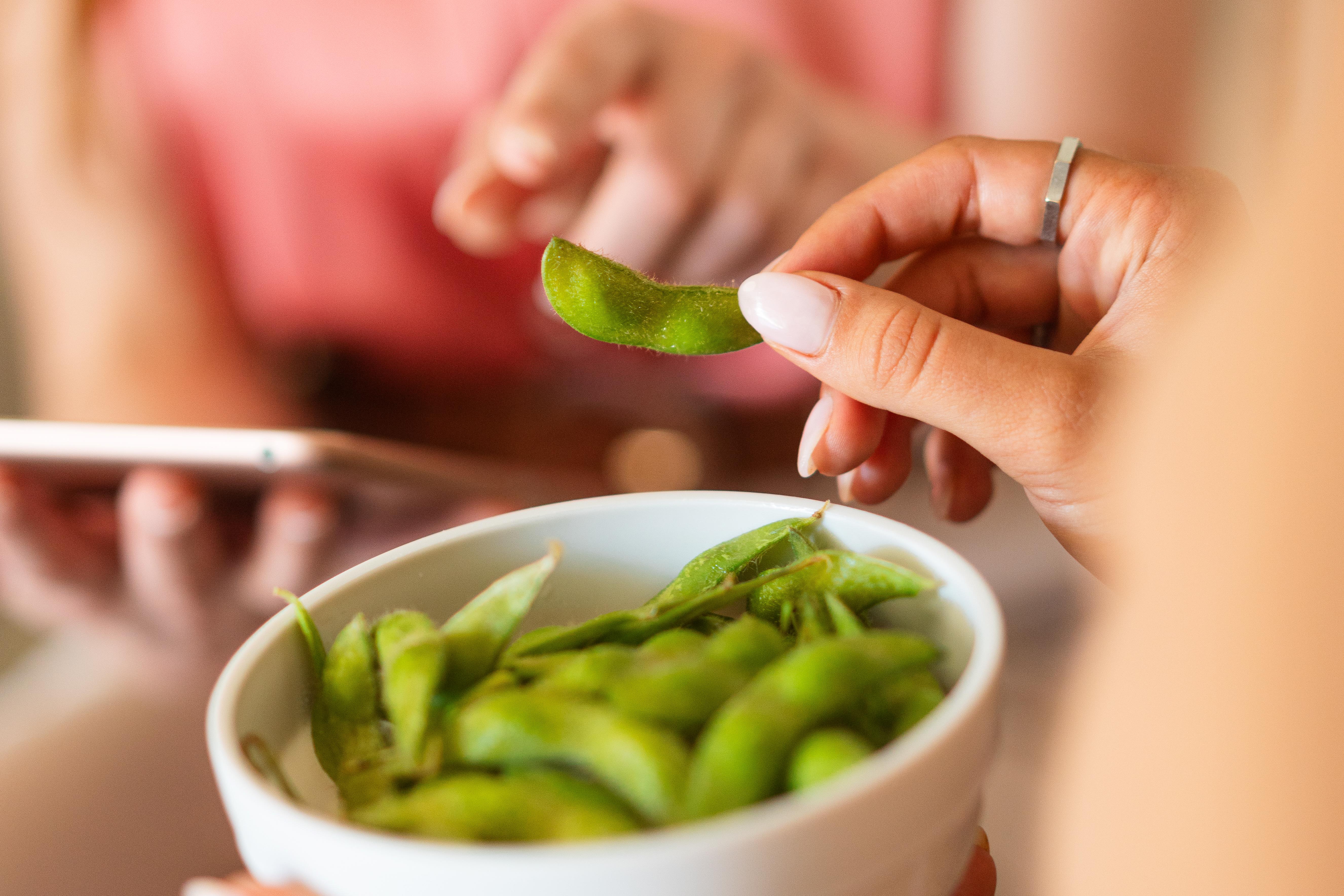After breast cancer treatment, many wonder, "What's next?" Conflicting information in the media can cause anxiety and food fears, or inaction. As a follow-up to primary cancer treatment, the American Institute for Cancer Research (AICR) and the American Cancer Society recommend the following cancer risk reduction steps.1,2
Make Physical Activity a Part of Everyday Life
Regular physical activity is associated with lower risk of breast cancer mortality and all-cause mortality in breast cancer survivors.3 According to the 2023 WCRF/AICR CUP Global report, each increase in physical activity, up to about five hours of moderate activity weekly, is linked with further reduction in these risks. Benefits apply regardless of age and are not dependent on weight loss.
Controlled intervention trials show that physical activity also improves health-related quality of life, reduces anxiety and depression, and enhances physical functioning.4
Tips to Share:
- Start small with even short blocks of time set aside for activities like walking or whatever you enjoy. Aim for feeling energized, not exhausted.
- Combine physical activity with established routines.
- Pay attention to immediate benefits like improved energy and sleep to reinforce the new habits you’re establishing.
Adopt a Plant-Forward, Healthy Dietary Pattern
The recommended dietary pattern emphasizes plant foods and limits added sugars, refined grains, and red and processed meats.1,2 Research does not identify any specific diet as best, so choices can be adapted to fit individual preferences.5
A healthy diet should support a healthy weight and body composition. Excess adiposity is strongly associated with greater risk of breast cancer mortality and all-cause mortality (and potentially with breast cancer recurrence).6 A dietary pattern that helps to manage cardiovascular risk factors is also important, since cardiovascular disease risk can increase after breast cancer.7
Tips to Share:
- Adjust food proportions on your plate and within mixed dishes; offset smaller meat portions with increased vegetables, whole grains, pulses (like chickpeas and black beans), and soy foods.
- Swap all or some of the meat in a stir-fry, pasta dish, or chili with tofu, tempeh, canned pulses or soybeans, or plant-based sausage or soy-based crumbles.
- Make new foods feel more familiar by using them with favorite recipes and flavors.
- Shift snack choices. Include tree nuts, soy nuts, edamame, and soy- or dairy-based yogurt for protein. Spread nut butter like peanut, soy, or almond on apple slices or whole grain pita or crispbread.
- Forego high-sugar commercial smoothies and whip up your own with soymilk or yogurt and some unsweetened frozen fruit.
- Save time by quick-cooking whole grains (like quinoa, bulgur, quick-cooking brown rice, and whole-grain pasta). Rely on choices like lentils, tofu, tempeh, and canned or frozen pulses and soybeans to pull a meal together in under 20 minutes.
People living with and beyond breast cancer are inundated with misinformation. Dietitians and other healthcare professionals play a vital role in helping them find reliable health information to make evidence-based lifestyle choices to support their health and well-being.
REFERENCES
- World Cancer Research Fund/American Institute for Cancer Research. Diet, Nutrition, Physical Activity and Cancer: A Global Perspective. Continuous Update Project Expert Report; 2018. https://www.wcrf.org/diet-activity-and-cancer/
- Rock CL, Thomson CA, Sullivan KR, et al. American Cancer Society nutrition and physical activity guideline for cancer survivors. CA Cancer J Clin. 2022 May;72(3):230-262. doi: 10.3322/caac.21719.
- Carioulou M, Abar, L, Aune D, et al. Postdiagnosis recreational physical activity and breast cancer prognosis: Global Cancer Update Programme (CUP Global) systematic literature review and meta-analysis. Int J Cancer. 2023 Feb 15;152(4):600-615. doi: 10.1002/ijc.34324
- Campbell KL, Winters-Stone KM, Wiskemann J, et al. Exercise guidelines for cancer survivors: consensus statement from international multidisciplinary roundtable. Med Sci Sports Exerc. 2019; 51(11):2375-2390. doi: 10.1249/MSS.0000000000002116
- Becerra-Tomás N, Balducci K, Abar L, et al. Postdiagnosis dietary factors, supplement use and breast cancer prognosis: Global Cancer Update Programme (CUP Global) systematic literature review and meta-analysis. Int J Cancer. 2023; 152( 4): 616- 634. doi:10.1002/ijc.34321
- Tsilidis KK, Cariolou M, Becerra-Tomás N, et al. Postdiagnosis body fatness, recreational physical activity, dietary factors and breast cancer prognosis: Global Cancer Update Programme (CUP Global) summary of evidence grading. Int J Cancer. 2023 Feb 15;152(4):635-644. doi: 10.1002/ijc.34320.
- Ramin C, Schaeffer ML, Zheng Z, et al. All-Cause and Cardiovascular Disease Mortality Among Breast Cancer Survivors in CLUE II, a Long-Standing Community-Based Cohort. J Natl Cancer Inst. 2021 Feb 1;113(2):137-145. doi: 10.1093/jnci/djaa096.
